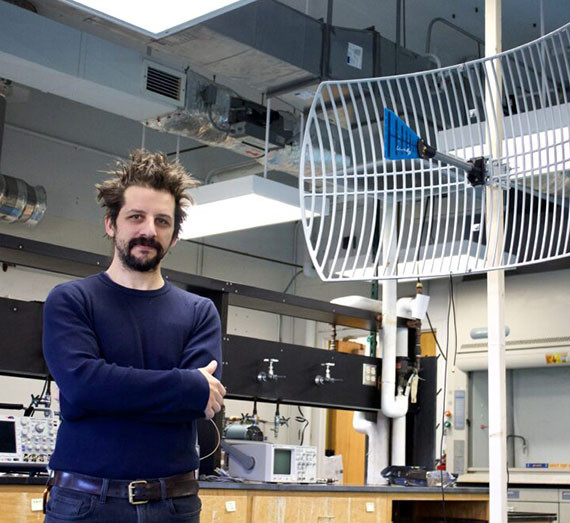Gonzaga Alum Lands 2022 MacArthur
Thursday, January 26, 2023

When Steven Prohira arrived at Gonzaga University as an undergraduate, he was interested in an art career, particularly woodblock printing and drawing. He earned his art degree in 2009, but even before he graduated, there were indications his career path might not be what he originally intended.
“My artwork started to revolve around trying to get a viewer to ask scientific questions,” he said in an interview with "Kansas Reflector" reporter Lily O'Shea Becker earlier this fall. “So I was interested in making pieces that looked a little bit weird or unusual that people would ask, ‘How does that work?’ And they weren’t very good, so I found that I was most interested in actually studying what was going on underneath what I was doing.”
While pursuing a master's in fine arts at the University of Kansas, he started taking electives in physics and astronomy, eventually earning his Ph.D. And this year, his work in detecting ultra high-energy neutrino particles earned him a coveted MacArthur Foundation "genius grant" for $800,000. The annual prize is awarded to 20 to 30 innovators each year as a no-strings-attached recognition of their work, and potential for pursuing even greater things.
“I thought it was totally a prank,” Prohira told the "Kansas Reflector" about his phone call from the MacArthur Foundation. “There’s no way. I didn’t believe it at all. … Then once I did believe it, just immense gratitude and sort of feelings of, ‘Why me?’ ”
The story explains: Prohira and his colleagues have developed the Radar Echo Telescope, with the end-goal of using radio waves to detect neutrino particles of energy higher than has ever been recorded. Neutrinos are elusive fundamental subatomic particles that move throughout the universe. Neutrino particles are building blocks of nature, along with other fundamental particles, such as electrons.
While neutrino particles are extremely common, with tens of billions passing through a human body every second, they are extremely difficult to detect.
“I think what’s exciting about it is that neutrinos sort of give us this glimpse into something that’s beyond our current models of physics,” Prohira said.
Because there is a lack of information concerning ultra-high energy neutrino particles, detecting them would provide new knowledge of nature and the universe.